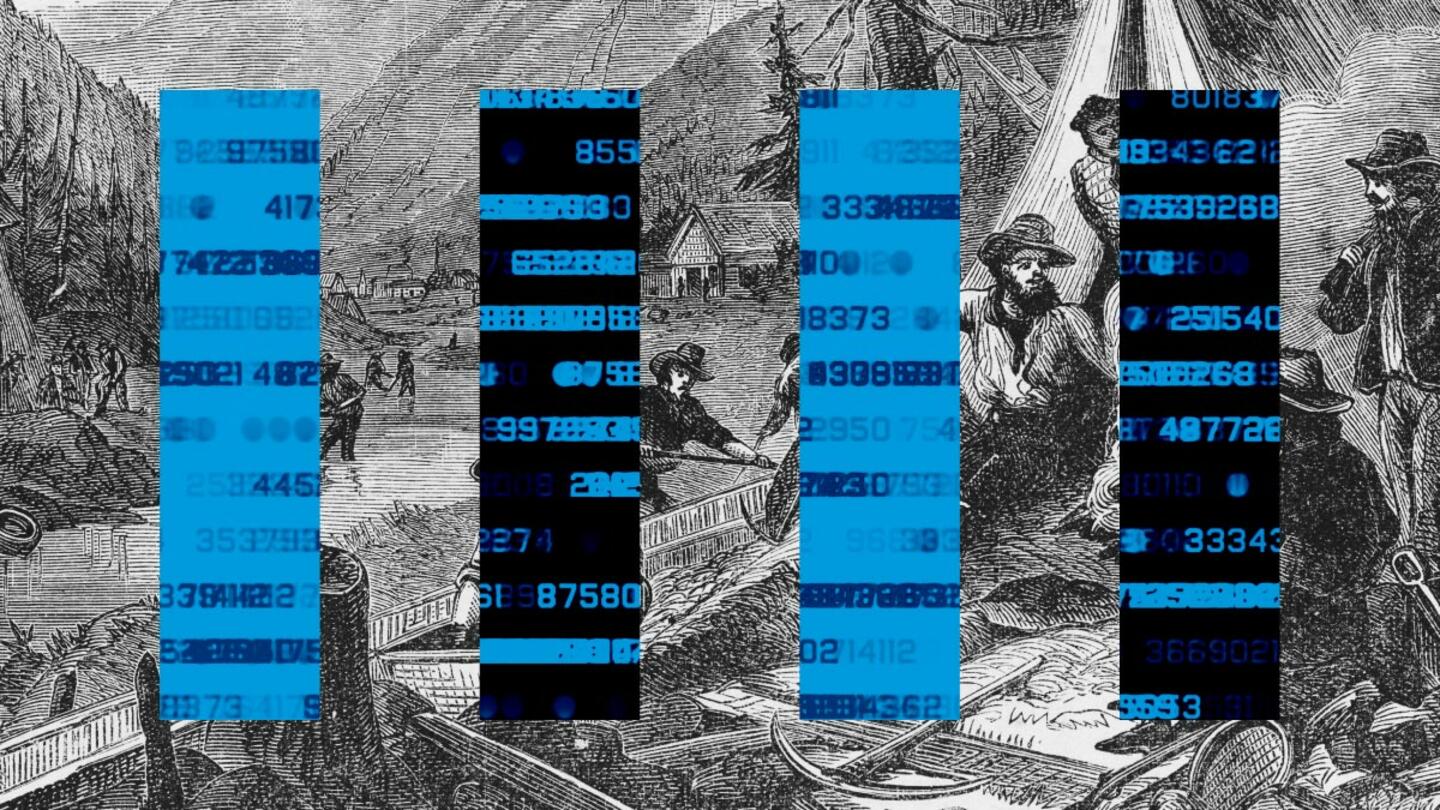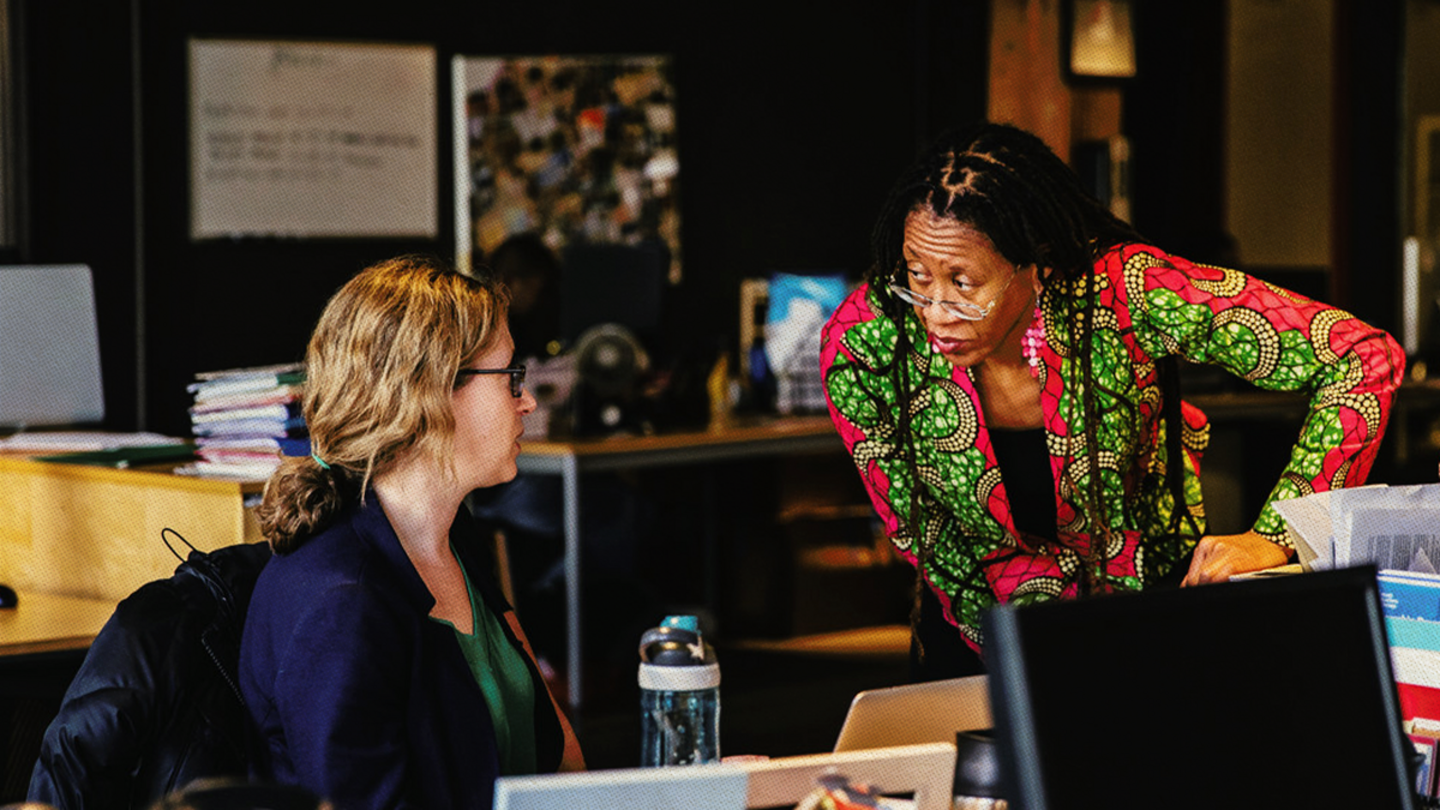The workplace is changing rapidly, and company leaders need to gain new skills to keep up.
The four-year degree is out. Learning on the job is in. The generational makeup of the workforce is unlike any we’ve seen in decades, and as a result, the entire purpose of a job is being reexamined.
The old ways of finding, hiring, and retaining talent need to adapt to these shifts — but how can hiring managers know where to start?
The Human Potential Summit, which took place in Denver this past October, explored just that. The summit provided a space for hundreds of innovators in work and education to present new ideas and discuss the most exciting changes ahead for the future.
If you couldn’t attend this year’s summit, don’t worry — here are four of the most promising tools that workplace leaders can access and begin using right now.
The key takeaway across all of these innovations? The future of hiring and advancement will require employers to think more broadly about the meaning of talent, potential, and work so that both employers and employees can be uplifted, leading to a more empowering workforce for everyone.
Tool #1: Identify and harness applicants’ personal talents and experiences with Vero Learning
For many high school seniors, college isn’t part of their future plans, whether due to financial constraints or because it doesn’t feel like the right path for them. The workforce largely writes off these individuals as not qualified for jobs — but in doing so, employers are missing out on a large pool of untapped talent.
Vero Learning bridges the gap by empowering young adults (ages 16-22) to identify and express their unique strengths and helping hiring managers explore what they can build together with their employees.
Using Vero can ensure that hiring managers who want to incorporate a broader range of experiences and professional backgrounds into their workforce know how to identify, hire, and retain talent with nontraditional educational backgrounds.
Employers work with Vero, describing the skills and qualities they need. Vero’s AI-powered platform provides career guidance for youth through self-discovery, asking questions like “Have you taken care of an elderly grandparent?” or “Do you enjoy cosmetology?” — which can then match them to industries like tech or health care.
Vero coaches these young people as they build the professional experiences necessary to apply for a job (offering guidance on apprenticeships, internships, and other work experience opportunities) and throughout the application process.
Once an applicant lands a job, Vero works with both employees and employers to identify workplace opportunities — for instance, on-the-job skills development — that ensure the employees thrive in their roles in a way that benefits the company.
Employers who tap into Vero’s talent pipelines can access a huge pool of potential candidates who are uniquely aware of the personal experiences, strengths, and skills they have to offer, thanks to Vero’s counseling.
Tool #2: Helping workplaces work toward a clear, effective mission with Common Group
All too often, employers who want to improve their workplaces find it hard to translate their values into concrete, actionable structures that accelerate their community impact. Common Group can help fill that gap.
Common Group is a consulting service that facilitates mentorships, knowledge sharing, impact assessments, and structural changes to ease the current bottleneck of talent. While older employees are rapidly retiring from the workforce, it can take around two months for newer employees to be hired, stalling productivity. Common Group makes sure that ideas and innovation can continue regardless.
Sign up for Stand Together's Rethinking Work & Learning newsletter to get the latest stories, ideas, and trends on the future of employment.
Common Group collaborates closely with hiring managers and workplace leaders to streamline hiring and ensure that employees find meaningful work where they can connect their roles to the company’s mission and the impact they aim to achieve.
This ranges from helping hiring managers clearly articulate their company’s mission — enabling more efficient hiring by attracting applicants who know they’re a good fit for the company — and facilitating mentorships and communications to create cohesive teams that thrive together.
For instance, Common Group helped Climb Hire create a national alumni network that allows past program participants to connect with and offer advice to potential applicants.
This ensures that both employees and management can more easily share their experiences, knowledge, and perspectives in order to foster mission-driven, innovative workplaces.
Tool #3: Filling employment data gaps with Julius Education
Many fast-moving industries lack up-to-date, publicly available data to describe their composition, leaving both employers and job seekers with an incomplete picture of what jobs are in demand and what skills are needed for them.
Data on job titles within the Bureau of Labor Statistics’ standard occupation codes only gets updated every decade or so. However, it is vital for categorizing how many people are employed, especially in booming industries like energy and advanced manufacturing. For hiring managers, this leaves a wide gap in understanding what skills they should be looking for — as opposed to arbitrary requirements — and how to best articulate them in job listings.
Julius Education helps fill these gaps, including data for government agencies and companies, as well as learner-facing applications that help individuals understand what jobs are available.
For employers — particularly government agencies — Julius offers labor market intelligence gleaned from its research that can illuminate the level of job demand for each industry. This includes certifications, skills, and compensation rates that can help employers craft more directed job listings. Julius also creates regional coalitions of workplaces in a particular industry, helping organizations share knowledge, ideas, and best practices.
Job applicants can access Julius’ career maps interface, including questionnaires that allow them to understand the career pathways that best match their interests and personalities (factoring in questions like “Do you like working on teams? Working outside?” and “Do you prefer fixing things? Selling things?” and so on).
Julius helps employers understand the state of their industry and what skills, experiences, and backgrounds can boost their workforce to the next level.
Tool #4: Expanding the workforce talent pool with IncSkill
Many organizations are moving past the four-year degree and considering employees with broader and more varied professional and educational backgrounds — but that isn’t the only talent pool employers are missing out on. Many disabled job applicants have valuable skills and talents to share. However, because of how job applications are designed, they are often unable to apply to roles or make it through initial screening.
IncSkill makes products and documents accessible for customers and employees with disabilities by using TaskGPT, an AI agent. The company’s NClude accessibility portal helps hiring managers uncover how their job listings might — even inadvertently — exclude disabled applicants. It also helps companies audit their products and services to ensure they are universally accessible.
This can open workplaces to the many disabled applicants who can enhance companies with their unique strengths and perspectives. Just ask IncSkill founder Kartik Sawhney. Born blind, he thrived at Stanford thanks to the accessible accommodations provided by the university — and today he is an innovative entrepreneur designing new technology and AI solutions for everyone.
Many other sectors could tap into similar levels of talent — if they leverage tools like IncSkill to ensure they’re not unintentionally shutting out entire communities.
***
Stand Together partners with changemakers who are tackling the root causes of America’s biggest problems. As part of the Stand Together community, the Charles Koch Foundation funds cutting-edge research and helps expand postsecondary educational options.
Learn more about Stand Together’s efforts to transform the future of work and explore ways you can partner with us.

Why AI may help more people achieve the American Dream.

Data centers are at the forefront of the ‘new economy.’ But what exactly are they?

Here’s how to bridge the disconnect between employers and employees.

Lessons learned from Colorado.
